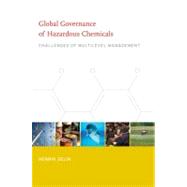
| Acknowledgments | p. vii |
| List of Acronyms | p. ix |
| Global Governance and the Chemicals Regime | p. 1 |
| Institutional Analysis and the Chemicals Regime | p. 21 |
| Global Chemicals Use and Management in a Historical Perspective | p. 39 |
| The Basel Convention and Hazardous Waste Management | p. 63 |
| The Rotterdam Convention and the Trade in Hazardous Chemicals | p. 85 |
| The CLRTAP POPs Protocol and Regional Standards | p. 111 |
| The Stockholm Convention and Global POPs Controls | p. 135 |
| Multilevel Governance and Chemicals Management: Past, Present, and Future | p. 163 |
| Notes | p. 197 |
| References | p. 203 |
| Index | p. 221 |
| Table of Contents provided by Ingram. All Rights Reserved. |
The New copy of this book will include any supplemental materials advertised. Please check the title of the book to determine if it should include any access cards, study guides, lab manuals, CDs, etc.
The Used, Rental and eBook copies of this book are not guaranteed to include any supplemental materials. Typically, only the book itself is included. This is true even if the title states it includes any access cards, study guides, lab manuals, CDs, etc.